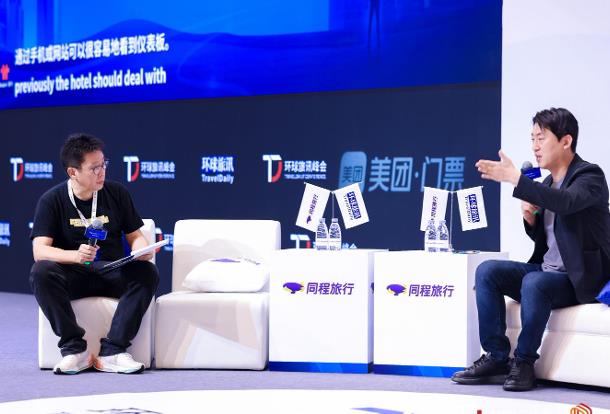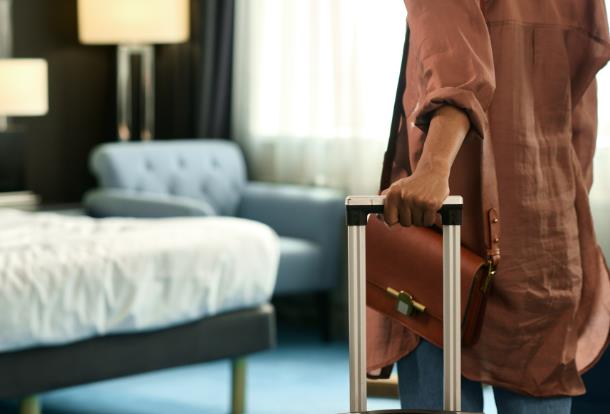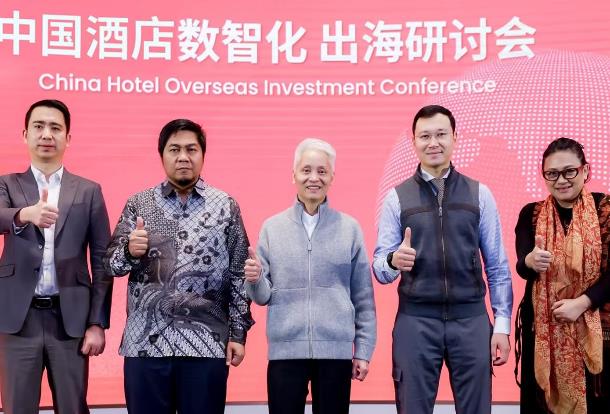ChinaTravelNews, Ritesh Gupta -Robots as a proposition for hotels are exciting and can charm guests. But can they go beyond this and understand what guests want? Probably yes, they can in the future.
“Robots are not far away.”
This message via WeChat from Michael Zhu, VP, Interstate China Hotels & Resorts just before I am about to interact with him about the utility of robots at hotels was the sort of a start that gets a conversation going.
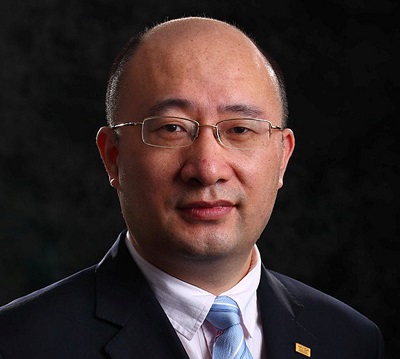
Michael Zhu, VP, Interstate China Hotels & Resorts
There have been developments in the area of computational power and how artificial intelligence can transform robots so that they can across far more “lifelike”. After going through reports about robots, be it for their roles in cars, the possibility of robots running or them recently defeating the world’s best Go (a game) player, it became apparent that a steady progress is being made.
So as I started interacting with Zhu, somewhere I was keen on knowing how well the industry is moving with teaching robots to do physical tasks, and how this can help hotels in their operations especially serving guests.
“It’s (presence of robots) definitely the trend (to lookout for) in the near future,” said Zhu.
“Actually some brands have already used robots . i.e., Aloft used a robot called SaviOne to deliver things or food to the guestroom. In the next 3-5 years, more and more hotels will use robots,” added Zhu. “But expect them to perform tasks based on simple interactions, and not complicated tasks.”
“Of course, the element of surprise and the novelty factor will excite guests and it would make for an interesting experience,” said Zhu, who added that robots won’t replace the staff at the property and the current phase is just the beginning. “If at all one would expect the role getting bigger, then expect more routine tasks say at the front office where movements are too much or there isn’t any complication. But this also is few years down the line.”
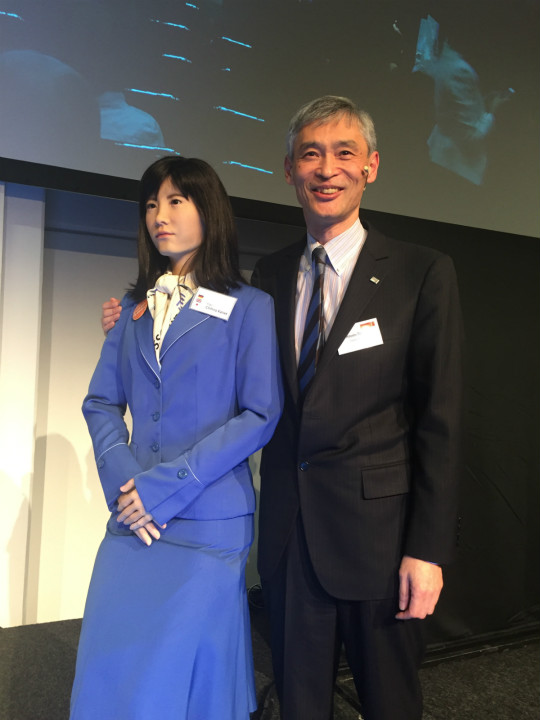
Toshia shown its hotel robot on ITB Berlin
Being realistic with expectations
When Starwood announced the trial phase in mid-2014, it emerged that the robot would be three feet in height, with a carrying capacity of 2 cubic feet, and designed to travel at a human walking pace. It would be able to move independently between floors via the hotel elevator.
Starwood was clear that its robot was meant for servicing and delighting guests.
Even with Zhu, the conversation was about customer service and entertainment.
“The role of robots is about customer service. Currently, I don’t think a robot can do too complicated works, but it can definitely complete simple tasks such as check-in, check-out, serve a cocktail in the bar, work as cashier in the outlets or a security staff to watch the door, etc.,” said Zhu. Citing another aspect, he referred to mere pleasantries being exchanged or sheer presence in certain areas of the property. “A robot toy in room would be welcomed by children and even adult. A lobby robot angel who greets guest in the lobby would bring lots of fun to the guests too. Or even a robot singer in the bar!” mentioned Zhu.
And what about personalisation?
To accentuate on this I cited an example, extending the possibility of delivery of food or any room service. So how about the robot knowing me and asking me relevant questions that are relevant to my profile, my preferences and my stay.
So let’s say a guest has been served. When it comes to settling the bill, the guests does like to clear it with his mobile. Would the robot ask him a relevant question and just not show the paper bill or receipt at all? Zhu said this is a good example and is quite possible. “The robot is actually a moving computer connected to the hotel applications such as PMS. So it can easily get the knowledge of a guest and serve him accordingly,” he said.
Of late reports have suggested that hotels may deploy robots for understanding different languages or handling data. Zhu agreed and said, “Just as I said a robot is a computer and of course can deal with different languages and handle data. This is quite a good experience for the guests. Imagine a robot can serve a German in their native language instead of English.”
According to a study’s findings, released by Travelzoo this month, Chinese and Brazilians “were the most positive about how robotics and artificial intelligence could enhance a holiday or travel in general – 92% of Chinese were comfortable with the idea”.
The survey for Travelzoo’s Future of Travel project also indicated that the main advantages respondents see in robots are related to general efficiency, data retention and recall. As for the role of the human staff at a hotel property, guests mentioned that in their absence “there is a genuine fear that cultural nuances, humour and irony will be missed and the holiday experience could become too impersonal”.
IoT + artificial intelligence
Technologists and futurists are keenly analyzing the Internet of Things (IoT) and artificial intelligence.
There has been talk of migrating intelligence.
If we were to simplify it, it would mean a robot is around your car or fridge. It could assess that the fuel in the car is about to get over or the milk in the refrigerator is about to finish. In such circumstances, a user could receive a message on his or her mobile device – the fuel is just enough for one-way drive to the office or the quantity of milk is enough for only one glass of your chocolate milk shake.
From the hospitality sector’s perspective, Zhu said, “IoT technology gives intelligence to “normal things”. For example, a guest with a RFID card will never get lost in a large hotel since the sensor near the guest can find the RFID card and tell who the guest is and guide him to his room.” Well, this can be pretty useful, especially when you check-in and are about to find your room. I have had one such experience at Hyatt Regency New Orleans where after 30 hours of flying from New Delhi, I just didn’t have enough to energy to locate my room in such a big property. Zhu said another example would be breakfast. “The sensor at the entrance to cafeteria will automatically find out if a guest is qualified for a free breakfast.”
He added, “Artificial intelligence is not popular as of now but will be soon. Examples including voice recognition, semantic analysis and room reservation for the guests at the call centre. Also, dealing with customer complaints and taking proper actions. As for revenue management, one can expect pricing-related decision-making being done by a machine.”
And what sort of preparation would be need from technology perspective - making use of software, integrated systems, data and analytics?
Zhu said first of all, all of the systems should be connected with each other. Secondly, there should be analysis of business procedures, making sure the technologies meet the business requirements. “We needn’t use a robot or artificial intelligence if those technologies don’t fit the business model of a hotel. Lastly, a monitoring mechanism needs to be in place, making sure the technologies are safe and in control.”
Being wary
Zhu said that safety is one area where hotel companies need to be very cautious. No one can risk the health of a guest, especially kids can be vulnerable, if robots malfunction and injures the guest in the process.
“The biggest concern is about the safety,” said Zhu. “When many of our decisions are made by a machine with artificial intelligence, things may go out of control some day.”
Mr. Zhu will attend the executive roundtable on "How Hotels Leverage Technology Innovation to Improve Operation and Distribution Efficiency?" of the 2016 China Hotel Marketing Conference co-hosted by TravelDaily China and ChinaTravelNews.

